Jordana Cepelewicz
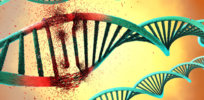
To learn, our brain cells routinely break and rebuild DNA. That insight is sparking a rethink of disease and aging
Faced with a threat, the brain has to act fast, its neurons making new connections to learn what might spell ...
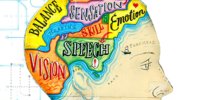
‘Scientists have searched fruitlessly for brain boundaries between thinking, feeling, deciding, remembering, moving and other experiences’ — but that’s not how it works
Not only do researchers often depict the brain and its functions much as mapmakers might draw nations on continents, but ...
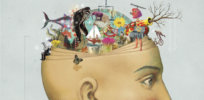
How our brain balances and blends past experiences with current perceptions
Our ability to make sense of our surroundings, to learn, to act and to think all depend on constant, nimble ...

CRISPR pioneers Emmanuelle Charpentier and Jennifer Doudna awarded 2020 Nobel Prize for Chemistry
The 2020 selection for the Nobel Prize in Chemistry goes to two scientists who share credit for identifying and developing ...

Our heartbeat shapes how we process fear and perceive the world
As the heart, lungs, gut and other organs transmit information to the brain, they affect how we perceive and interact ...
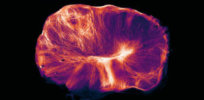
Brain organoids becoming ‘more human’, forcing researchers to grapple with ethical concerns
Though no bigger than a pea, organoids hold enormous promise for improving our understanding of the brain: They can replicate ...

Why your brain filters out things you don’t need to see
Scientists have long known that our sensory processing must automatically screen out extraneous inputs — otherwise, we couldn’t experience the ...
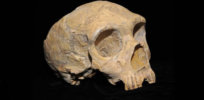
‘Are Neanderthals just another version of us’?
As scientists peer further back in time and uncover evolutionary relationships in unprecedented detail, their findings are complicating the narrative ...

Our powers of perception are boosted by our brain that guesses what’s about to happen
Imagine picking up a glass of what you think is apple juice, only to take a sip and discover that ...

Using genetic data to examine differences between populations just ran into a problem
Various innovations in the field of genomics over the past few decades have given researchers hope that resolutions to long-lasting ...

We know how the brain perceives shapes and colors. But what about time?
Marc Howard, a cognitive neuroscientist now at Boston University, and Karthik Shankar, who was then one of his postdoctoral students, wanted ...
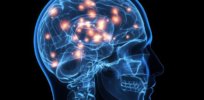
How the brain maps out ideas and memories
As the philosopher Immanuel Kant put it, the concept of space serves as the organizing principle by which we perceive ...
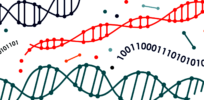
Computer scientists turn to evolutionary biology for inspiration
Creationists love to insist that evolution had to assemble upward of 300 amino acids in the right order to create just ...
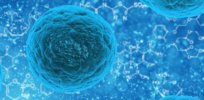
‘Stemness’ and the downside of limiting our definition of stem cells
As more sophisticated technology has revealed just how plastic and heterogeneous cell populations can be, some researchers have transitioned from ...
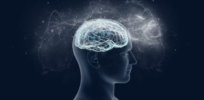
Why our brains are in the business of predicting the future
According to [the] “predictive coding” theory, at each level of a cognitive process, the brain generates models, or beliefs, about ...

How Rev. Thomas Bayes’ faith helped us understand how the brain works
It all began in 1748, when the philosopher David Hume published An Enquiry Concerning Human Understanding, calling into question, among ...
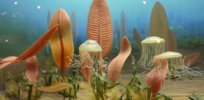
What spurred the Cambrian explosion? Evolving animals may have led to more oxygen, not other way around
Scientists have long sought to determine what caused the Cambrian explosion, and to explain why animal life didn’t take this ...
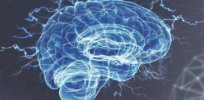
Can we boost memory through brain stimulation?
In a study appearing [February 6] in Nature Communications, [...] a team of researchers succeeded at enhancing memory more reliably, by stimulating ...

We’re about to see an expansion of life’s genetic code
With recent innovations in gene editing, it may seem as if the field of synthetic biology is just starting to ...

Plant evolution: Compact genomes and tiny cells helped flowering plants take over the world
When people consider evolutionary events related to the origin and diversification of new species and groups, they tend to emphasize ...
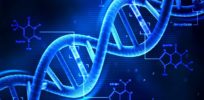
Evolutionary tradeoffs: How DNA works so living things have a ‘competitive advantage’ to survive
Evolution is a game of trade-offs. Every trait an organism inherits may have benefits and drawbacks; what matters to natural ...

Neanderthal population estimate increases tenfold
Some gene-based estimates put the Neanderthals’ effective population at a measly 1,000; others claim they hovered at a few thousand ...

Physicist Nigel Goldenfeld: Life started with physics, not biology
[Editor's note: The following is part of an interview with Nigel Goldenfeld, director of the NASA Astrobiology Institute for Universal Biology ...

Bear love affair: Grizzly and polar–Interbreeding neighboring species played key role in evolution
In 2006, a hunter shot what he thought was a polar bear in the Northwest Territories of Canada. Closer examination, ...

Could we artificially create mutations that might aid cells in battling cancer?
The scientific challenge has not just been to demonstrate convincingly that harsh environments cause nonrandom mutations. It has also been ...

